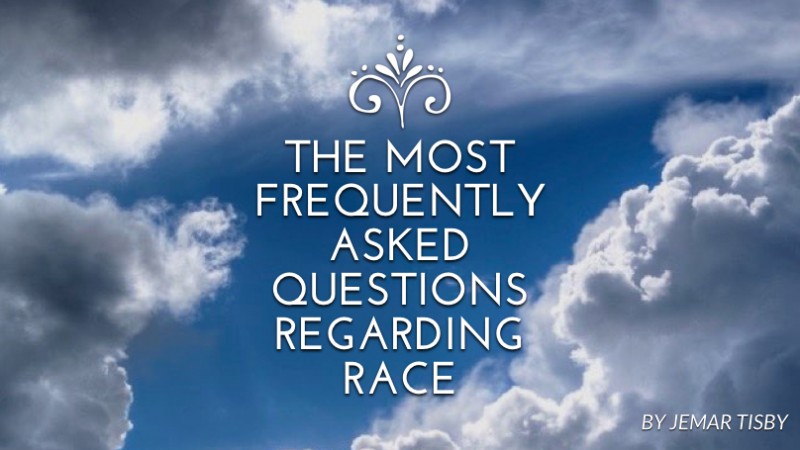The following post from Trillia Newbell’s blog gives great insight and wisdom as we continually learn to better navigate the pressing issues of race and culture in our ministry and day-to-day living. In her recent blog series, Kristie Anyabwile and Jemar Tisby share their answers to three of the most frequently asked questions regarding race, reconciliation, and the role of the church in it all. Here are thoughts from Jemar.
What can I do?
Racial justice requires a fundamental posture toward people who differ. It is not first and foremost an issue of doing, but of being. We must be the kind of people who, in humility, count others more significant than ourselves (Philippians 2:3). That said, who you are is displayed by what you do. Instead of developing an endless “To Do” list in answer to the question of “What can I do?”, I like to use the A.R.C. of racial reconciliation.
The ‘A’ in A.R.C. stands for Awareness. This encompasses all the actions we take to inform ourselves. Americans in general suffer from an ahistorical perspective on race. We have to confront this ahistorical perspective and know the context of race in our nation in order to address our present issues. I recommend the following resources to begin building your awareness of racial issues:
- Divided by Faith: Evangelical Religion and the Problem of Race in America by Michael Emerson and Christian Smith
- Doing Racial Harmony a presentation by Thabiti Anyabwile, Trillia Newbell and Jemar Tisby
- The Reformation and Racial Reconciliation a presentation by Ligon Duncan and Jemar Tisby
- The African Americans: Many Rivers to Cross a PBS special by Henry Louis Gates, Jr.
- From Every People and Nation: A Biblical Theology of Race by J. Daniel Hays
The ‘R’ in A.R.C. stands for Relationships. While we have to realize that simply having friends of a different race will not effectively shift race relations nation-wide, personal interactions across ethnic lines do build empathy and familiarity. But we all tend to gravitate toward people like ourselves, so this will take intentional effort, especially from those in the majority.
The ‘C’ in A.R.C. stands for Commitment. Awareness of and relationships with people of other races should lead to action. This analogy has been used many times and bears repeating. Picture a pedway at an airport. You can be walking in the same direction as the pedway (racist). You can be standing still on the pedway (non-racist), or you can be walking against the direction of the pedway (anti-racist). Most people are simply satisfied being non-racist. A non-racist endeavors not to consciously say or do racist things and thus add to the evil. But being an anti-racist means you actively work against racism in various forms. That means interrupting a culturally insensitive joke, initiating conversations with friends and family members who hold racist views, or leading discussions and prayers at church and a host of other actions. Commitment requires a proactive dedication to dismantle racist assumptions and actions in our personal networks and the broader society.
I’m afraid to speak. How can I speak this topic well?
My main encouragement and admonishment to the Christian church in the United States regarding race relations is “be strong and very courageous” (Joshua 1:6). God spoke these words to Joshua as he was about to take over leading the nation of Israel after Moses’ death. The assurance God gave Joshua was, “I will not leave you or forsake you” (v. 5). God has fulfilled that promise in the coming of his son, Jesus Christ–Immanuel, “God with us.” Christ has given us the Holy Spirit through faith and dwells with us eternally as we carry the gospel of reconciliation to people of every tribe, nation, and tongue. Lean into this difficult chargebecause you have the power of God to do so. Do not shrink back in fear when people label you, insult you, misunderstand you, and forsake you. Christ told us we would face these things for the sake of the faith, but he has overcome the world (John 16:33). So be bold and courageous in this tumultuous but fertile season for reconciliation.
On a more practical level, people in the majority should let minorities have the microphone. Popular Christianity in the United States tends to favor the voices of the majority. Racial reconciliation requires “centering” the marginalized minority.
It’s time to read books by minorities, have minorities give plenary talks at our biggest conferences, and let minorities write the blogs and make the recommendations. In this way, we honor the gifts of the body and learn from one another.
Is there hope?
While it is true that we may never see the fruits of our labors at racial justice, we take God at his word when he says, “The one who sows righteousness gets a sure reward” (Proverbs 11:18). That should encourage us not to wait idly for the second coming, but to pray all the more fervently “thy Kingdom come” and then act.
But in the midst of a never-ending news cycle of negativity, Christians may often ask themselves, “Is there any hope of racial reconciliation in our nation and in our lifetime?” I think the realistic answer is yes and no. No, because we live in a world that is still broken by sin. Things aren’t right and will never be right until Jesus returns. As it says in Hebrews 13:14, “For here we have no lasting city, but we seek the city that is to come.” This isn’t our home, and we will always be uncomfortable until it comes.
But there is a “yes” to the question of whether we have reason to hope, because we can make a difference in the small circle of neighbors in which God has placed us. Signs of hope are in the new family who comes into your church, an ethnic minority who finally feels heard and understood, a local law passed or judge elected who upholds biblical standards of morality–all of this and more is achievable where you are and while you live. As Paul encourages the Galatians, “And let us not grow weary of doing good, for in due season we will reap, if we do not give up” (Galatians 6:9).
Published September 1, 2016



